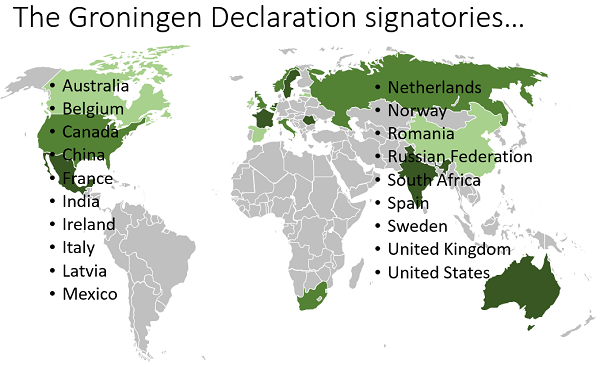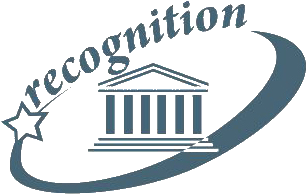A Digital World for All
Last week the director of the Federal State Institution “Glavexpertcentre” Vera Skorobogatova has participated in the 5th Annual Groningen Declaration Network Meeting held in
Groningen Declaration on Digital Student Data Depositories Worldwide was organized at the
In order to make this free movement of students and skilled workers a reality, and in order to unleash the full potential of digital student data depositories, the signatories want to look into privacy rights, ownership of data, identification, access, and forwarding/sharing of data, next to compatibility of systems and comparability of data.
“A Digital World for All: Making Skills Mobile” is the motto for this year’s meeting, which accurately reflects the ambitions and potential of the Groningen Declaration Network. Qualification skills, learning outcomes, being a person’s attainments in terms of academic training, professional experience, or otherwise, should be digitally articulated, exchanged and accepted.
At the conference the participants discussed topics concerning the authenticity of the awarded qualifications and the creation of reliable databases of students and awarded academic degrees – diplomas. The director of “Glavexpertcentre” Vera Skorobogatova has presented the federal information systems of apostilles and the register of documents on education.
The main topics of the conference covered 3 broad categories: political issues; administrative issues such as e-Enrollment; and hard core IT issues. Practically all participating countries shared their experience in electronization of document flow in education and demonstrated their projects. For example, the representatives of
The China Higher Education Student Information and Career Center (CHESICC) has been able to steadily build up its network of partners in the digital student data ecosystem, to promote global student record mobility in partnership with evaluation agencies, data exchange companies and educational institutions. This presentation introduces CHESICC's pilot programs with its partners in the
The Officials of UNESCO Lene Oftedal and Borhene Chakroun have introduced to the participants the development strategy of the Global Convention on recognition and the ideas concerning the Groningen Declaration.
In total representatives of 28 countries have participated in the conference.
The conference host this year was the South African Qualifications Authority (SAQA), which celebrated its 20th anniversary.
Certainly, the goal of the Groningen Declaration very precisely meets the spirit of time mobility, when it is possible within 5 minutes to obtain reliable information about learning outcomes of any student without paperwork and long-term inquiries. The following conference of the Groningen Declaration has presented progressive models and facilitated and built the new architecture of the international educational field in the information society.
Vera Skorobogatova has invited the participants to continue the discussion at the annual international conference organized by the








